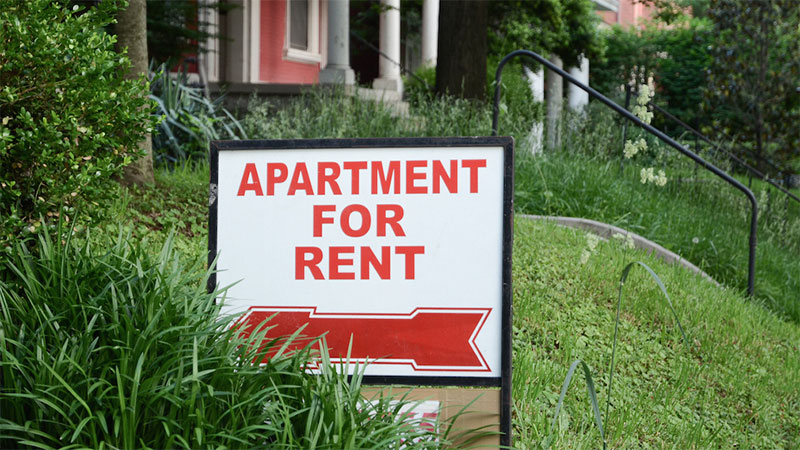
Your rental property should be owned in an LLC. The reason: Limited Liability Company limits the liability.
I'm sure you've heard the horror stories of landlords and vacation rental property owners getting sued by renters and losing everything. And guess what, If you own the property without an LLC, the tenant or guest could have your wages garnished and force you to sell all your properties and drive you to bankruptcy. It's not a fun place to be.
Well, while rental properties generate income and wealth, they can also create liabilities.
Table of Contents:
- What Does LLC Stand For?
- 5 Reasons You Should Put Your Property In an LLC
- Bonus Advice
- Frequently Asked Questions
- Disclaimer
If a rental property is held in your personal name, or it is organized as a sole-proprietorship (as an easy and quick way to set up a business), all your personal wealth and assets are linked to the business. You could be in for a world of hurt as everything that happens on the home creates personal liability to you and creditors can go after all of your personal assets, income, and wages.
The simple answer on how you can effectively protect your peace of mind and your property and personal belongings could be to structure your business inside of a legal entity that will separate the liabilities between the individual and the legal ones.
And the best way to achieve it: Your rental property should be owned in an LLC. The reason: Limited Liability Company limits the liability.
However, LLC's are highly misunderstood in the short-term-rentals space because they're just so darn complicated. In this post, I want to walk you through the world of property rental LLC's and give you the Top 5 Reasons why you should consider creating one for your single or multiple rental properties.
But before we jump into the list, and for better understanding, first let's talk about what an LLC is:
What Does LLC Stand For?
According to BusinessDictionary.com;
A Limited Liability Company, also known as an LLC, is a type of business structure that combines traits of both a sole-proprietorship and a corporation. An LLC is eligible for the pass-through taxation feature of a partnership or sole proprietorship, while at the same time limiting the liability of the owners, similar to a corporation.

Wow... but hold on, it's actually much more simple than it sounds. Indeed, this definition hides some of the main advantages of establishing LLC for rental property owners. So let's start by dissecting it:
5 Reasons You Should Put Your Rental Property in and LLC
Rental Property LLC - Reason Number 1 - Limited Liability
Let's say a renter slipped on the stairs and broke their hip. Then it decides to sue you as the rental property owner for neglect and the court sides with the tenant for whatever reason. Let's say your insurance doesn't cover all the legal penalties and you as the owner are required to pay a couple hundred thousand dollars out of pocket to the tenant. Ouch!
Well if you own the property without an LLC, your business doesn't exist as a separate legal entity. All your personal wealth and assets are linked to the business... So, yeah... you may end up eating cold beans out of a can under a bridge while pigeons sit on your shoulder... not to elaborate further in details.
On the other hand, if the owner of that rental property was Mainstream Investments LLC, then the LLC is the owner getting sued. Your liability and the damage to your wallet might be contained to the assets within the LLC and not everything else you own.
The courts, of course, could make you sell that property but they likely won't going to make you sell the other properties owned y separate LLC's.
In other words, if an LLC is set up right and you get sued, the creditors will be required to sue the LLC and can't go after the LLC owner personally. The high chances are that they won't be able to come and take your personal house, your car or garnish your w-2 job wages.
Rental Property LLC - Reason Number 2 - Tax Efficiency
The LLC is fairly easy to handle during tax time, especially if it's a single-member LLC which basically means you own it or you and your spouse.
This is where that part of the LLC definition "An LLC is eligible for the pass-through taxation" comes to its full potential. LLC's are known as pass-through entities, which means the income and expenses flow magically through the LLC and are instead reported and paid by each individual member on their personal income statement.
As you can see, an LLC owned by one person or a married couple isn't too difficult to manage and generally doesn't require a separate LLC tax return. Instead, you report the property and its profit/loss on your personal gain in the same way you'd report the profit/loss if you owned it in your personal name.
In other words - a galaxy far far away from the intricate universe of corporate taxation.
But be cautious here: While a single-member LLC does not require its own business tax return, a multi-member LLC with partners does.
Rental Property LLC - Reason Number 3 - Operational Flexibility
An LLC is fairly flexible in terms of running it. You don't need a thousand documents, you don't need a bunch of stock issued, it's fairly easy to set up and fairly inexpensive depending on where you're at.
In most states, an LLC can be created simply by filling the "articles of organization" and paying the required filing fee. This document is also known as a "certificate of organization" or a "certificate of formation".
Rental Property LLC - Reason Number 4 - Raising Loans to Expand Your Business
When you are holding rental property in your own name, there are banking issues with crediting your business. Although it may be easy to get a loan on your first couple of deals, all of those deals you do will start showing up on your credit report, so every time you go into another agreement your debt to income ratio is going to be really high because you're gonna show all these mortgages on your own personal name.
Jet another reason that as quickly as you can, most preferably with your very first rental property if you have assets available, you start using an LLC and getting mortgages in our LLC.
Some banks are not lending to LLCs, but those are wrong choices obviously. Instead, you should be dealing with a small community bank or a big portfolio bank that does mainly financing investment stuff they will fund LLC's all day long.
Rental Property LLC - Reason Number 5 - You are Not the Only Owner of the Property
That sounds like a simple thing, but let's make it more complicated by intent. Let's say you buy a property A with your brother Juan, and you buy another property B with just yourself or you and your wife. All those scenarios are in different setups and different ownership.
You should definitely, have an LLC for each of those deals that has a different ownership breakdown, different percentages, different builder benefits, different owner rights and responsibilities, roles and goals for each owner. For each LLC, the operating agreement for the LLC will define all of those things.
Bonus Advice - Get Rental Property Liability Insurance Policy
Regardless of all the benefits of having LLC for your rental property in respect to the protection of your personal assets, you always want to have a separate liability insurance policy set up.
Make sure that you have liability insurance, regardless of how you structure your business, for your LLC, even if you're in a sole proprietorship.
For the in-depth insight on this topic, please read our separate blog article: Vacation Rental Insurance - All You Need To Know.

Frequently Asked Questions
1. Is a rental property considered a business?+
There are some valid reasons why some people would say that being a rental property owner is not a business. They would say that owning a short-term-rental property is simply just investing and the rent you receive is a return on your investment, similar to stocks and shares.
Although that may be true, you have to remember that landlords and property managers have a customer, who needs must be met and problems with the property must be solved.
They would also say that the government doesn't classify private rental property owners as a business.
However, I believe that when you start approaching property investing as a business, and not just investing, you would do better, and there's a higher chance of your portfolio improving and growing over time.
As a conclusion, I recommend that if you're new to property investing, you should approach it as a business from day one.
If you're already a rental property owner, start thinking like a business owner now, if you're not already.
2. So is LLC the best form of legal entity for Property Rental Businesses?+
Most apparently, yes. If you talk to many high-level accountants or lawyers, they will tell you that owning rental properties inside of an LLC is the way to go. Why? Once again, it limits your overall liability.
3. Should I form an LLC for each rental property I own?+
Following the advice from lawyers and accountants that we communicated with over the time, you should stick to so colled single umbrella LLC for as many rental properties as far the cap value not exceeds the amount of $150,000. And then when you move beyond that, set up another LLC.
Why this cap restriction you may ask? Because as long as you are within this limits, your operational benefits of running an LLC for just a few properties are compensating the risks of the fact that for multiple rental properties under the same LLC, if any liability claim goes the wrong path for any of these, all other LLCs under that umbrella is automatically effected as well. Likewise, for the amounts above $150,000, you should make separate LLC as the protection layer for new umbrella properties. Off course, the given cap sum is arbitrary, and it solely on you to decide if this is a valuable business practice in your particular circumstances.
Also, In certain states where you have lots of properties, you may want to consider a series LLC which provides liability protection in the LLC between multiple properties such that if something happens to one property in the series LLC it doesn't affect the other properties in the series LLC.
The other scenario is related to the rental properties in different locations. For each state that you own a rental property, you should establish a separate dedicated LLC as well. The reason lays in different legislations in these states that may pose many obstacles for the umbrella LLC scenario.
4. Does LLC offer 100% full protection against personal liability?+
It's crucial to make sure you run your LLC correctly; otherwise, you could still be subject to personal liability if a court decides to pierce the corporate veil and get to your personal assets. That means that each LLC needs an operating agreement and a separate bank account when you get rent payments or any payments through one of those properties. Only after that income goes through the bank account for that LLC, you will be eligible to pay yourself and use those assets to maintain that property that's owned by the LLC.
However, as long as you cover all of that with your lender and you make sure you run your LLC the way you're supposed to like it's a real business than putting an investment property in an LLC is generally a great way to protect yourself personally from the liabilities of that investment property.
5. What are the disadvantages of an LLC?+
First, keep in mind an LLC is not just one sheet of paper or a few mouse clicks at the online website, and you're done. You need to have all the pieces and parts an operating agreement, minutes a corporate book a bank account, tax Id number if you need to the protection of that LLC.
When you show up in court, you better have all that stuff with you.
Setting up the LLC takes money as well. Maintaining it takes money, filing taxes takes money too, and if your rental property does not make that much cash flow... hm...
Imagine spending two grand a year on this LLC and the house only cash flows $1,200 a year. LLC's can turn a good investment into an ugly one, right?
Bottom line: get an attorney involved that understands taxation, can set up entities in all 50 states and help support you with company maintenance and even be an address for you. Also, make it affordable. It shouldn't be thousands and thousands of dollars.
Final advice: set up LLC's as you grow and as you expand, don't overdo it and set up an elaborate structure just because you have two rentals.
-- Full Disclaimer --
Although in this article we positively established the fact that running property rental business on your own name might be a huge mistake, and that there is probably a better legal entity for owning commercial real estate in the form of LLC, please bear in mind that what works for one person might not work for you and what works for you might not work for me, and by any means we are not either lawyers or accountants. In this respect, we strongly urge you to consult with your own lawyer and your own accounting team about these issues before making any decisions.
» Add Your Comment










